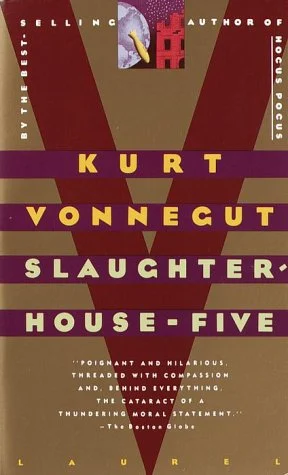 Inglés
InglésSlaughterhouse-Five
Kurt VonnegutArrendar
Recíbelo en 24-48 horas arrendado
Cotizar Título
Confirmar Disponibilidad para Compra
Slaughterhouse-Five follows the story of Billy Pilgrim, an optometrist who becomes "unstuck in time" and experiences different moments of his life in a non-linear sequence. Billy's narrative is largely shaped by his experiences as a soldier during World War II, particularly his time as a prisoner of war after being captured by the Germans. One of the most significant events he witnesses is the bombing of Dresden, a horrific attack that devastates the city. The novel shifts between Billy’s recollections of wartime horrors and his later life as a middle-aged man who has become an unwilling celebrity due to his unique ability to time travel. Throughout the novel, Vonnegut blends absurdity, dark humor, and profound existential reflections to comment on the destructive nature of war, the randomness of existence, and the human capacity for resilience and suffering.
The novel is structured in a fragmented, episodic manner, reflecting Billy's disorienting experience with time travel. Billy is frequently taken to the alien planet of Tralfamadore, where the aliens explain their perception of time as an eternal, unchangeable reality, where all moments exist simultaneously and nothing can truly be altered. This philosophy profoundly influences Billy's view of life and death, leading him to adopt a passive attitude towards the tragedy and suffering he witnesses, famously repeating the phrase "so it goes" whenever death or disaster occurs. Vonnegut’s use of time manipulation, metafiction, and satire makes Slaughterhouse-Five a compelling exploration of the absurdity of human existence, the inevitability of death, and the inherent chaos of war. The novel stands as a powerful anti-war statement while also offering an intricate exploration of fate, memory, and the meaning of life.